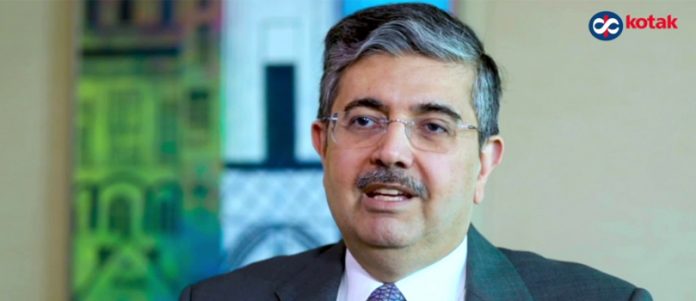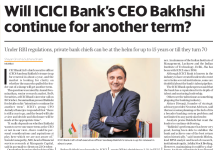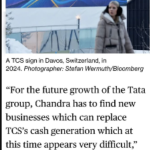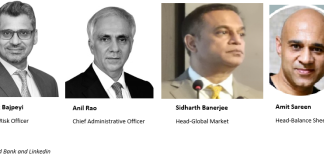Uday Kotak is a cautious and savvy banker with deep and strong connections in the business world. However, by no stretch, is he an activist. So, why would he drag his regulator to court, especially the Reserve Bank of India (RBI) which has always guarded its ‘independence’ or lack of public accountability very zealously?
Kotak’s decision, made after a great deal of deliberation, was the subject of much derision and raised eyebrows in business and official circles. But, for us, the lawsuit is symptomatic of the frustration of all stakeholders with the opaque and, often, capricious RBI. In this case, it is about the frequent changes in promoter holding norms for new private banks.
RBI ordered the promoters of Kotak Mahindra Bank (Kotak) and Bandhan Bank to bring down promoter holding to below 20%. In Kotak’s case, there has been back-and-forth on the issue for 10 long years, largely because of the many changes in guidelines and regulations in the interim. Finally, RBI gave an ultimatum to both the Banks and threatened coercive action if they did not comply by 31 December 2018.
Bandhan Bank, a micro-finance company-turned-bank that hit the big time, was asked to dilute its stake, within three years, to 40% (August 2018). After an IPO (initial public offering), the promoter shareholding remains locked in until 2019; but RBI doesn’t care about capital market regulations. Since Bandhan Bank failed to dilute its holding, RBI decided to freeze the pay of a very dynamic promoter, Chandra Shekhar Ghosh, and bar it from opening new branches. Faced with the reputational damage implicit in the action, Bandhan Bank was pressured into desperate dilution.
On 7th January, Bandhan Bank announced the acquisition of Gruh Finance (57.8% held by HDFC), one of the most high-valued housing finance companies in the world. The all-share deal surprised and upset shareholders on both sides causing both the stocks to tank, even though it helped Bandhan Bank move towards compliance with RBI’s rules and brought in a marquee shareholder like HDFC (Housing Development Finance Corporation).
Interestingly, HDFC would have liked to get 5% in cash, but Bandhan Bank, which has been strong-armed by the regulator, needs every rupee to focus on expansion. Again, shouldn’t RBI have to explain its rigidity when it already has a cap on voting rights?
Does RBI really have the power to punish banks on the basis of unexplained and ever-changing rules on the acceptable promoter holding? Can a regulator, which has repeatedly failed to catch wrongdoing for over 25 years (from Harshad Mehta to Nirav Modi and Gitanjali), have no accountability for capricious actions against good managements and consequent damage to shareholder value? Isn’t it absurd that two highly successful bankers are being punished by the regulator, despite exemplary performance?
The Kotak petition raises many important issues which, if taken to a logical conclusion, will force some clarity on RBI’s powers, policymaking and supervision and its accountability.
Kotak’s lawsuit against RBI came up for hearing on 17 December 2018 where media headlines focused on the fact that the court had not granted a stay. In fact, RBI was given time to respond by 17th January (it has, since, sought more time to respond and the next hearing is on 12th March) and it also assured the court that it “was a responsible institution and would act accordingly.” Effectively, Kotak is protected from coercive action until March and, possibly, until the issue is resolved.
The Kotak petition, which I have reviewed, makes four compelling points.
1. RBI’s many changes on promoter shareholding, after it was granted a banking licence in February 2003, ought not be applied retrospectively to it.
2. RBI’s regulations are ultra vires of Sections 12, Sec 12(2) and Sec 12(B) of the Banking Regulation Act (BR Act). Kotak argues that the BR Act does not empower RBI to ask any bank to reduce shareholding; the Act only permits it to fix a ceiling on voting rights. Or, if a shareholder is found to be ‘not fit and proper’ [Sec 12-B (8)], to curtail such person’s voting rights to 5%. It further argues that RBI’s general powers under Sec 35-A to issue directions to banks and make delegated legislation, is also circumscribed by the need for these to be in public interest and to protect depositors’ interest.
3. Kotak claims that it has complied with RBI’s direction by reducing its stake to 19.5% (below the mandated 20%) in August 2018 by issuing perpetual non-convertible preference shares (PNCPs). RBI had immediately rejected the move and demanded a reduction in paid-up voting capital to prevent concentration of control.
4. Finally, the petition says, compliance would require the Bank to issue fresh equity of Rs1.10 lakh crore, which was “equal to the entire market-capitalisation of State Bank of India.” It calls this ‘manifestly unreasonable’, since it would not only dilute share value but require large placements to foreign institutional investors.
The last bit has a patriotic appeal attached to it, with the submission that Uday Kotak had partnered with, and eventually bought out marquee foreign partners (Goldman Sachs, Ford Credit), and acquired of ING Vysya Bank (with a 44% foreign holding) in order to remain an Indian bank. Kotak points out that its foreign shareholding is already at 47% and a forced dilution will only push majority stake into the hands of foreign investors.
RBI’s Changing Rules
Kotak has raised significant issues that need answers. For instance, on point 1, when RBI granted Kotak a licence in 2001, RBI mandated a minimum capital requirement of 49% for it, since it did not want promoters of new private banks to cobble together money from diverse sources.
In 2005, RBI came up with new rules on ownership and governance of private banks and wanted the changes to apply retrospectively to Kotak. In 2012, it decided that Kotak would need to reduce promoter stake to 20% within 10 years and to 15% in 12 years, in accordance with new bank licensing guidelines issued in 2013.
So far, each communication referred to ‘paid-up capital” which is a key issue in the petition. In 2016, RBI came up with more changes – it issued ‘On tap licensing guidelines’ with different deadlines for dilution of promoter equity. It also issued ‘Ownership Master Directions’ which added to the confusion by saying that conditions applicable to specific licences at the time of issuance would remain valid.
While RBI kept changing the rules, it also repeatedly granted additional time to Kotak to comply with its diktat through eight letters written from February 2008 to 30 January 2017. Each of these referred to a reduction in promoter shareholding as a percentage of ‘paid-up capital’, says Kotak. However, in August 2018, for the first time in 10 years, RBI demanded a reduction in promoter holding as a percentage of ‘paid-up equity voting capital’.
Banking Regulation Act and RBI’s Powers
This brings us to Kotak’s second contention. When it was granted a banking licence, the voting rights of each shareholder were capped at 10%. Following amendments to Section 12(2) of the BR Act, RBI was granted the power to increase voting rights of shareholders from 10% to 26% in a phased manner. Section 12-B, inserted into the BR Act, requires investors to seek specific permission from RBI for any acquisition of shares of 5% or more of the paid-up share capital.
Kotak argues that RBI derives its powers from the BR Act which make its legislative intent very clear: the Act does not restrict or prohibit larger shareholding, but capped voting rights to 26%. Hence, Kotak maintains that RBI’s demands and regulations are untenable for being ultra vires of the BR Act.
Concentration and Control
If the whole purpose of forcing a reduction in promoter holding is to prevent one powerful group from controlling the bank, what does RBI have to say about the fact that all major private banks – HDFC, ICICI and Axis Bank are now majority foreign owned?
Concentration in the hands of disparate institutional investors may seem different from promoter control; but the Kotak petition argues that foreign institutions are guided en masse by only a couple of global proxy advisors (rather than making up their own mind) on corporate resolutions which means that they will end up taking action as a block.
To my mind, this opens up a whole new discussion on the role of proxy advisory firms in India and abroad and one wonders why Uday Kotak did not address this in the corporate governance committee headed by him, where a couple of proxy advisors were the voice of shareholders. Even if one ignores the whole swadeshi pitch, probably aimed at lobbying government, the fact that Indian private banks are majority foreign owned is an issue that needs discussion.
Banking analyst Hemindra Hazari, argues https://thewire.in/banking/kotak-rbi-tussle-also-has-consequences-for-control-of-the-overarching-group that Kotak is the holding company for the entire group and a majority shareholder in Kotak Prime, Kotak Securities, Kotak Capital, Kotak Life Insurance and Kotak Asset Management and owns a 100% shareholding in various subsidiaries. He says, “The structure was devised so as to capture the valuation of all the group companies into KMB (Kotak), which was the sole listed entity in the group” and this personally benefited Uday Kotak.
Mr Hazari, correctly, believes that this structure causes the entire risk of the group to fall on unsecured bank depositors. Uday Kotak himself is getting a ringside view of the risks involved in complex holding structures as he struggles to unravel the Infrastructure Leasing and Financial Services (IL&FS) scandal which is continuing to threaten the financial system. But, again, this can be dealt with through the securities market and insurance regulator and also by demanding listing or separation of group entities.
Implications for RBI
Whichever way one looks at it, the Kotak petition is a lose-lose proposition for RBI, whose power has been challenged for the first time in court (unlike SEBI which is routinely dragged to the Supreme Court over most decisions).
If Kotak wins—and it has a strong case—it could seriously circumscribe RBI’s powers and make it more accountable than the government could ever have done. Investors will also want to know how this extreme rigidity, backed by punitive action, helps improve its supervision and catch the next IL&FS or NiravModi/Gitanjali in time. Those failures have inflicted far bigger pain on India’s financial system. If RBI wins and forces Kotak to dilute shareholding through needless acquisitions or issue of capital, it would mean an endorsement of capricious changes and no accountability for regulators.
Our sources believe that between now and several postponements, RBI would find a way to get this lawsuit dropped, rather than have a judicial ruling on its powers or even the way in which it keeps changing the rules of the game. After waiting long enough for things to cool down, it is likely to work on an acceptable compromise.
Hopefully, the compromise will benefit all banks. Uday Kotak is too shrewd a businessman to indulge in a protracted war with his regulator. He was pushed into litigation because of the humiliatingly rigid stand of RBI. It will be a pity, though, if this litigation ends through a closed-door compromise without RBI being forced to be more transparent, accountable and predictable. If nothing else, it should be forced to take into account how its changing rules clash with other regulations.














